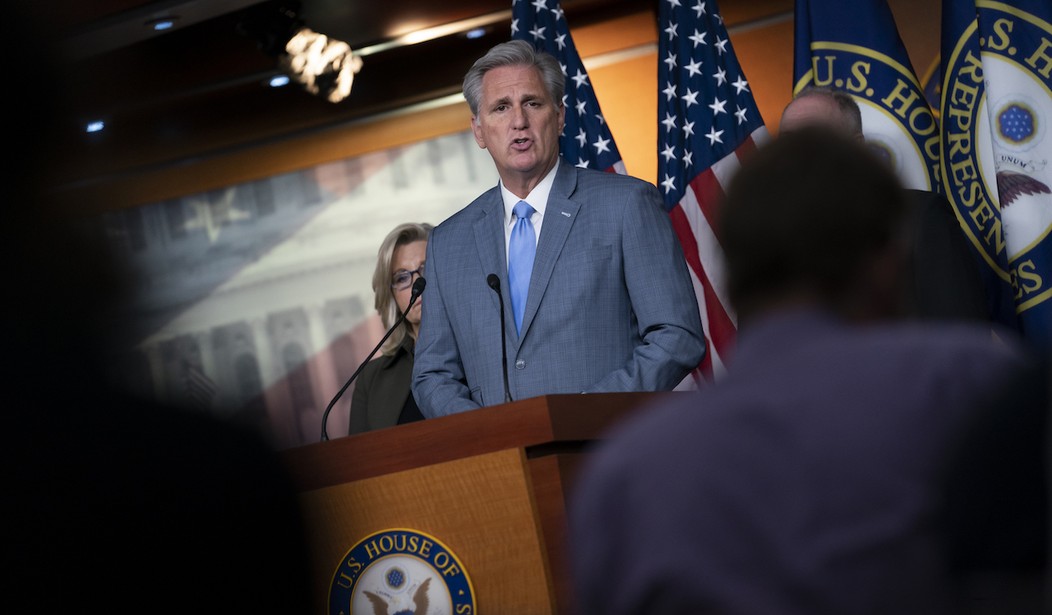Conservatives agree that direct payments to American families are the most effective way to stimulate economic growth. This idea has strong conservative support from the likes of Senator Josh Hawley (R-MO) and House Minority Leader Kevin McCarthy (R-CA).
The economic crisis brought on by COVID-19 lockdowns is an existential threat to struggling, working-class Americans. CNBC reports that there likely will be an eviction crisis with North Carolina having an “estimated 300,000 to 400,000 North Carolinians struggling to pay their rent.” Some are calling this an ‘eviction tsunami’ that will hammer families nationwide in 2021. There are also heartbreaking stories of food lines forming during the holidays and a possible 50 million people in America experiencing a food shortage. Direct payments to families will help alleviate some of the pain.
Conservatives have consistently been opposed to government bailouts. However, direct payments – that allow Americans to spend as they see fit – are an effective, efficient, responsible alternative to bailing out big businesses and local governments. Conservatives would be smart to remember that President Trump was the first champion of direct checks. That direct aid is a big reason why the economic fallout from the initial onset of the pandemic was not much worse.
That legislation ended up getting loaded up with the Paycheck Protection Program (PPP) that did help some, yet much of the money ended up going to big, not small, businesses. Recently released data shows that the Paycheck Protection Program money was shared unevenly (25% of the money went to 1 percent of well-connected businesses), with the biggest sums going to only a “sliver of the companies in need.”
Recommended
Republicans need to stress the direct-stimulus approach as an alternative to an inefficient, PPP-style program that will be too expensive, overly complicated, and – if past is prologue – graft-prone. Conservatives must push direct-stimulus through the lame-duck now or suffer the consequences of an unfair, swamp monstrosity later crafted by moderate Republicans and Biden Democrats.
Need based relief is a far better option than another one-size-fits-all bureaucratic mess of a bill that sabotaged the core of the CARES Act. As Judge Glock pointed out in National Review, “indiscriminate stimulus in a pandemic is absurd. The government should not offer broad-based stimulus in the next bill, and should focus instead on targeted relief for those directly affected.” Glock rightly argues that “Congress should aim to help those specific individuals who have lost jobs, businesses, or health coverage. But this is directed ‘relief,’ not overall ‘stimulus’ aimed at the whole economy.” A new package pushed as an effort to stimulate the economy will waste money and fail if it does not provide resources to control the virus and provide aid to Americans hurt by government shutdowns.
When we look back at the impact of the CARES Act, we see that a fraction of the $522 billion allocated went to small businesses. The Washington Post reported that “According to data on the government’s Paycheck Protection Program (PPP), about 600 mostly larger companies, including dozens of national chains, received the maximum amount allowed under the program of $10 million.” Although the data indicates that 87 percent of the loans under $150,000 went to smaller businesses, the fact remains that more than half of the program’s allocation went to bigger businesses. Instead of arbitrary income-based caps that seem too high, Republicans can push policies that will end up keeping out-of-work Americans off welfare programs. The money should go to those who need it for food and rent, instead of higher earners who will not spend the cash immediately and likely do not need it at all. A fiscally conservative approach would be to cap the program at those earning an annual income of $100,000.
Sen. Hawley is concerned about the interests of working Americans and he has introduced legislation this week that includes a second round of relief checks. Hawley has asked President Trump to veto a coronavirus relief plan that does not include direct assistance to struggling families and the White House has voiced support for another round. Supporting this effort will help to stop Joe Biden and Congressional Democrats from taking political credit for direct assistance to American families.
Moody’s forecast, as reported by The New York Times that “without more aid, the economy will fall into a new recession early next year, with the unemployment rate approaching 10 percent.” The Economic Security Project commissioned a poll that found widespread support for direct payments, including Republicans who support the idea by 70 percent with 52 percent registering ‘strong support.’ A bipartisan coalition of economists, including Hank Paulson, called for “assistance to individuals and families, including extended federal government income relief to unemployed individuals, enhanced benefits to households who need help buying food, and measures to help people who are facing potential eviction and homelessness because of pandemic-related income loss.” The data and economist support the direct aid approach to combatting the economic impact of the coronavirus.
Without direct relief checks, it is another giant bureaucratic bailout that will fail to keep the economy upright and fail to help families in need. Direct checks – with need-based eligibility – spend taxpayer dollars on taxpayers, do it more cost-effectively than PPP-style bailouts and give people the relief they deserve as winter closes in.
Erica Rogers is a freelance writer, editorial director at Capitol Allies, and was a legislative aide to former New Jersey Assemblyman Nicholas R. Felice. She lives in the DC metro area with her husband and five children.

























Join the conversation as a VIP Member